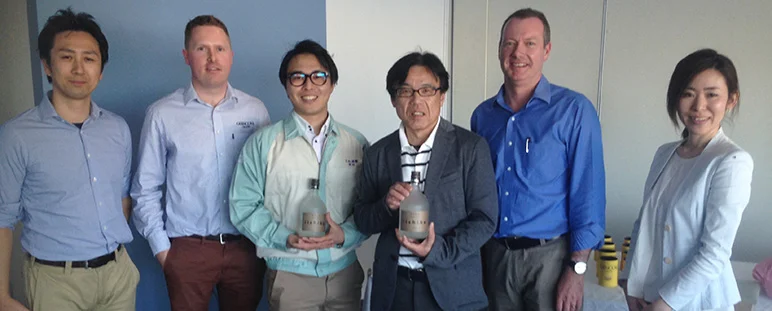
South Australian barley growers have the opportunity to meet end-use customers from Japan this week in a special tour organised by Glencore Grain.
Representatives from Japan’s largest Shochu producer ‘Sanwa’ are visiting the Yorke Peninsula and mid north to speak directly with barley growers and see the South Australian industry first hand.
Lyndon Asser, Senior Commercial Manager, said Sanwa uses South Australian barley as the main ingredient in Shochu and other high grade liquors.
“This will be a unique opportunity for growers to hear directly from an international end-user,” Lyndon said.
“Sanwa will explain why high standards of quality are so important and discuss with growers the barley varieties being grown.”
Lyndon said Glencore Grain hosted many international delegations to SA.
“It’s about building a connection between growers and end-users and understanding what happens to the grain after it leaves the farm.
“Sanwa values our close relationships with growers and were very keen to get up close and share information about their business.
“We’re holding three meetings for growers at Wallaroo, Laura and Sevenhill where they will also have the opportunity to taste Shochu, which is a little like clear Whiskey.
“Glencore Agriculture’s Country Manager for Japan is also here and will talk about the full range of products exported to Japan, not just barley, and what end-users are looking for.”
Lyndon said the visit allowed Glencore Grain to reiterate the benefits of the South Australian supply chain to end-users.
“While they’re here, we can promote South Australia’s clean, green environment, world class facilities and food safety and quality processes which gives them a high level of confidence that grain from South Australia will meet their specific requirements.
“In a global marketplace, South Australia is competing with all other states in Australia and countries around the world to sell grain. The more end-users we can attract to South Australia, the better the outcome for growers and for the state.”